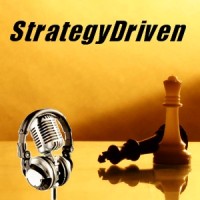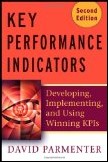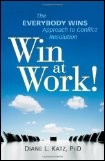Leadership Inspirations – Dealing with Adversity

Mary Kay Ash (1918 – 2001)
American businesswoman and
Founder of Mary Kay Cosmetics

Mary Kay Ash (1918 – 2001)
American businesswoman and
Founder of Mary Kay Cosmetics
Having grown up in western New York in the 1950s and ’60s, I have memories of family vacations spent at destinations like Niagara Falls. Although the Falls themselves were indeed magnificent, equally memorable for a 10-year-old was the soot from nearby factories that accumulated on the porch furniture, requiring that we cleaned the furniture daily, lest we ruin our clothes. The accompanying stench was also something to experience. I still remember asking why, in a place of such natural beauty and splendor, did it have to be so polluted? The answer, accepted wisdom in those days, was that this was “the smell of money.” If we were going to have economic prosperity, then we would have to put up with some minor inconveniences, such as soot, stench, rivers that catch fire, and mountains of waste. It was the cost of progress. I remember being singularly unsatisfied by this response.
Fast-forward to 1974. As a freshly minted college graduate headed to Yale for graduate work in the School of Forestry and Environmental Studies, I was convinced that corporations were the “enemy” and that the only way to deal effectively with environmental problems was to “make them pay” through regulation—to internalize their externalities, in the jargon of economics. This was probably a correct perception at that point in history: Large corporations, by and large, had been unresponsive to environmental issues, and it appeared that the only way to deal with the problem was to force them to clean up the messes they were making. The Environmental Protection Agency and scores of other regulatory agencies were created precisely for this purpose. A mountain of command-and-control regulation was passed during the decade of the 1970s, aimed at forcing companies to mitigate their negative impacts.
Hi there! This article is available for free. Login or register as a StrategyDriven Personal Business Advisor Self-Guided Client by:
Subscribing to the Self Guided Program - It's Free!
About the Author

, is the Samuel C. Johnson Chair of Sustainable Global Enterprise and Professor of Management at Cornell University’s Johnson School of Management. Professor Hart is one of the world’s top authorities on the implications of sustainable development and environmentalism for business strategy. He has published over 50 papers and authored or edited five books. His article “Beyond Greening: Strategies for a Sustainable World” won the McKinsey Award for Best Article in the Harvard Business Review for 1997 and helped launch the movement for corporate sustainability. To read Stuart’s complete biography, click here.

Special Edition 44a – An Interview with David Parmenter, author of Key Performance Indicators, part 1 of 2 explores how to create a winning key performance indicator system that transforms these reports into decision-making tools supporting achievement of superior bottom line results. During our discussion, David Parmenter, author of Key Performance Indicators: Developing, Implementing, and Using Winning KPIs shares with us his insights and illustrative examples regarding:

Additional Information
In addition to the outstanding insights David shares in Key Performance Indicators and this special edition podcast are the resources accessible from his website, www.DavidParmenter.com. David’s book, Key Performance Indicators
, can be purchased by clicking here
.
About the Author

. David is an internationally renowned speaker, author, and advisor known for his work in the development of performance measurement systems that transforms these reports into a decision-making tool. He is a Fellow of the Institute of Chartered Accountants in England and has delivered workshops to thousands of executives and managers around the world. To read David’s complete biography, click here.
Podcast: Play in new window | Download (Duration: 25:29 — )
Subscribe: RSS
It started with the silver screen, over a century ago. And while the advent of TV, personal computers and mobile devices as the second, third and fourth major screen technologies have clearly changed life as we know it, Digital Out Of Home (DOOH) technology – the “fifth screen”, as it’s known – has created amazingly influential opportunities of its own.
Today’s digital networks are easier to design, present and deploy than ever before, in part because of the price drop in flat panel displays and Content Management Systems (CMS). We’re also seeing an increase in education and technology advancements, as well as manufacturers and suppliers taking a more holistic approach in supporting those who want to get into the DOOH business.
Hi there! This article is available for free. Login or register as a StrategyDriven Personal Business Advisor Self-Guided Client by:
Subscribing to the Self Guided Program - It's Free!
About the Author


Special Edition 43b – An Interview with Diane Katz, author of Win at Work!, part 2 of 2 examines how to deal with workplace conflict in a non-confrontational manner that enables everyone involved to win and the organization to function more productively. During our discussion, Diane Katz, author of Win at Work!: The Everybody Wins Approach to Conflict Resolution shares with us her insights and illustrative examples regarding:

Additional Information
In addition to the invaluable insights Diane shares in Win at Work! and this special edition podcast are the resources accessible from her website, www.TheWorkingCircle.com. Diane’s book, Win at Work!
, can be purchased by clicking here
.
Final Request…
The strength of our community grows with the additional insights brought by our expanding member base. Please consider rating us on iTunes by clicking here. Rating the StrategyDriven Podcast and providing your comments online improves our ranking and helps us attract new listeners which, in turn, helps us grow our community.
Thank you again for listening to the StrategyDriven Podcast!
About the Author

and President of The Working Circle, a management consultancy providing organizational development, human resources, and team building training and coaching. For over 15 years, Diane has helped executives and managers in manufacturing, construction, technology, healthcare, government, and nonprofits better deal with workplace conflict using her unique, 8-step non-confrontational method, The Working Circle. To read Diane’s complete biography, click here.
Podcast: Play in new window | Download (Duration: 25:22 — 34.9MB)
Subscribe: RSS
